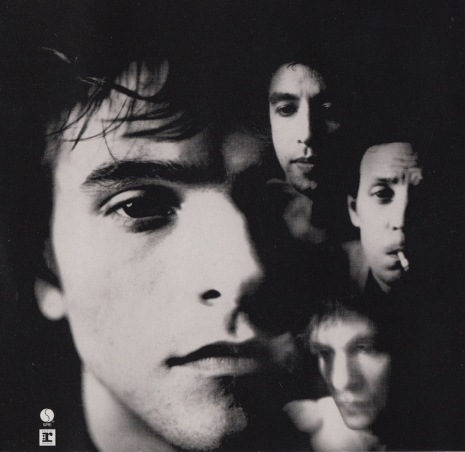
After a long search for who would produce the follow-up to the Replacements album, Please to Meet Me (1987), Tony Berg was selected. At the time, Berg was a 34-year-old musician/producer, though he didn’t have any production credits yet. Despite—or perhaps because of—his inexperience, ‘Mats leader Paul Westerberg immediately liked Berg, and the two hit it off. But it wasn’t to last. Over the course of ten debaucherous days recording at the isolated Upstate New York facility, Bearsville Studios, Westerberg and the other Replacements battled Berg in various ways. Though the sessions were frequently chaotic, combative, and ultimately shelved, they weren’t entirely in vain.
A total of nine tracks from the Bearsville tapes have been included on the new Replacements box set, Dead Man’s Pop. Bob Mehr, author of Trouble Boys: The True Story of the Replacements, penned the liner notes, and we’ve got a few excerpts from the Bearsville passage.
Tony Berg would come to view the ten days he spent in the studio with The Replacements philosophically. Over the years Berg would become a respected industry veteran with over 100 productions to his credit. Back in 1988, however, he admits he was not fully prepared for the chaos of The Replacements. “They were like pirates—it was like producing pirates! They had everything but the Jolly Roger waving,” said Berg, laughing. “They came into Bearsville like a band of cutthroats—they lived up to their reputation and then they disappeared. There wasn’t a dull minute.”
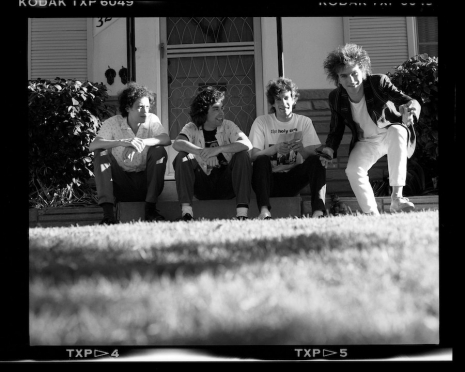
Initially, Berg worked closely with Westerberg, but this intimacy and Berg’s growing influence over the material riled up bassist Tommy Stinson and guitarist Slim Dunlap. Notwithstanding, the band managed to get a number of songs down on tape. But the Replacements were growing restless.
While the session seemed to be going well on the surface, the stifling environment at Bearsville soon began to take its toll. After a week in the woods, The Replacements had come down with a severe case of cabin fever, à la The Shining. “In each of our cottages there was a little kitchenette with knives,” said Stinson.
“Every night we’d go to one of the cottages and start playing ‘Dodge Knife.’ That’s like dodgeball but with knives. It got very . . . troubling.” According to Berg, “They had car accidents. They trashed the studio. They trashed the living quarters. They were on medication that you would normally prescribe for horses and bears. They were just a mess.”
When a technical snafu resulted in an especially productive session being lost, the situation continued to deteriorate.
That night, while cutting “Asking Me Lies,” Berg wanted Stinson, the bassist later claimed, to funk-slap the instrument; Berg said he simply wanted a “funkier” part. The discussion ended abruptly when Tommy hurled a half-gallon of gin through a studio window. Then Westerberg lit the remnants of a guitar he’d smashed on fire in a garbage can on the studio floor. “You didn’t want to be around us,” said Stinson. “We were gone-crazy-devil-drunk.”
The chaos climaxed with a Stinson-Westerberg game of “I Dare Ya.” “I believe I was dared to walk across the studio console,” recalled Westerberg. Bearsville was home to a truly magnificent Neve 8088 board that had been custom-built for The Who. Westerberg was instantly up on the $250,000 console, Jack Daniels bottle in hand, nimbly tiptoeing around the faders and knobs. “He was very light on his feet,” observed Stinson.
At the sight of this, Berg became apoplectic. A screaming argument with Westerberg erupted, a week’s worth of frustration spilling out. As things boiled over, each man tried to flee the studio in a different direction, but they simply wound up following one another down the hall. “By the end of it, Tony and I were in tears, crying and yelling,” said Westerberg.

Fearing the Replacements might do something rash with the recordings, before Berg left the studio that night, he snagged the tapes. When the band discovered this, they were not happy.
After a few more hours of drinking, The Replacements came back to the studio to hear the day’s work and were furious to discover Berg had taken the tapes. Westerberg summoned Berg to his cabin for a showdown. “I arrived and faced these four furious renegades,” recalled Berg. He somehow managed to placate the band, despite Dunlap hissing at him, “Are you with us or agin’ us?” After a long night’s sleep, an uneasy denouement was reached. The sessions carried on without incident for a few more days before the band packed up and headed home.
The Replacements would soon hook up with a new producer, Matt Wallace, and go on to make Don’t Tell a Soul (1989).
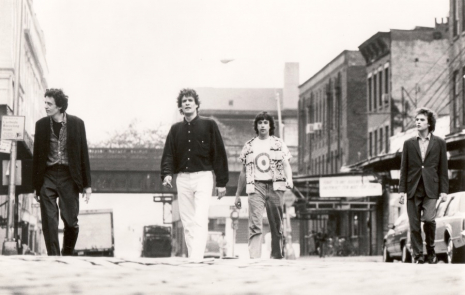
Amongst the Bearsville tracks on Dead Man’s Pop is a surprisingly subdued and synthy stab at their near-hit, “I’ll Be You”; a lively “We’ll Inherit the Earth” that rocks harder than the familiar DTaS version; the otherwise unreleased “The Last Thing in the World”; the raucous “Wake Up”; and the tender “Portland”—an apology to the city for a particularly unruly Pleased to Meet Me-era show—which morphed into DTaS opener, “Talent Show.” With the majority of the Bearsville tracks on Dead Man’s Pop appearing on Don’t Tell a Soul in re-recorded form, the Upstate New York sessions ended up acting as a kind of trial run for the eventual LP.
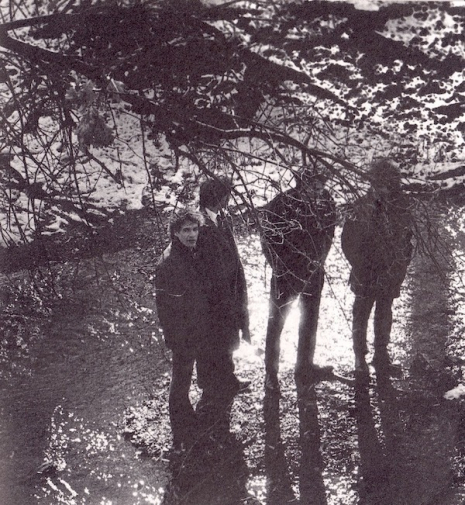
In addition to the Bearsville recordings, Dead Man’s Pop features a revealing new remix of Don’t Tell a Soul by Matt Wallace, reflecting how both band and producer originally wanted the record to sound and flow. The box also includes a whiskey-fueled session with Tom Waits, as well as other Wallace-produced outtakes, and a complete, glorious live show, with the DTaS material sounding significantly sprightlier compared to the corresponding studio versions on the standard 1989 album. Wallace’s recollections appear in the booklet alongside Mehr’s excellent notes and a wealth of photos. All in all, Dead Man’s Pop is a welcome chance to reassess what can now be recognized as the Replacements’ most misunderstood LP.
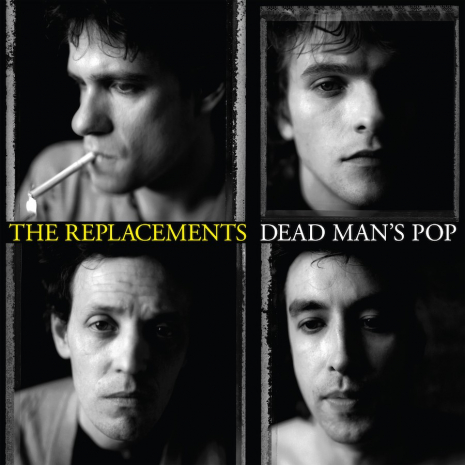
Dead Man’s Pop is out now. It’s available as a 4CD/1LP set, as well as a digital download, and is streaming on select sites. See links to buy/stream here.
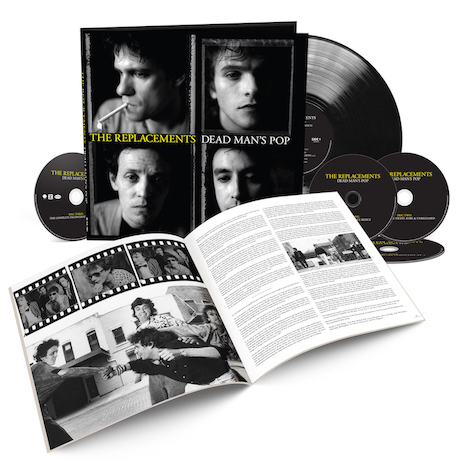
Here’s the Bearsville version of “Achin’ to Be”:
In early 1989, MTV News conducted an interview with Paul Westerberg and Tommy Stinson. During the frequently amusing exchange, a number of topics are discussed, including what the Replacements look for in a producer.
Previously on Dangerous Minds:
Legendary live Replacements recording finally sees the light of day (a DM premiere)
That time the Replacements & Tom Waits got shit-faced during an impromptu recording session, 1988
The Replacements censored on live awards show (but get the last laugh), 1989